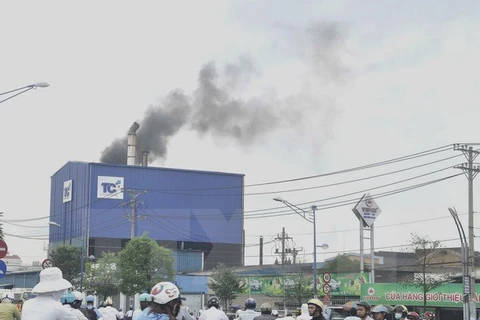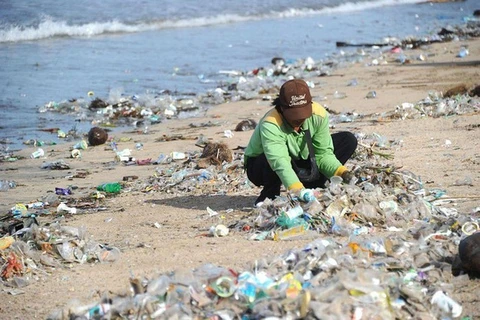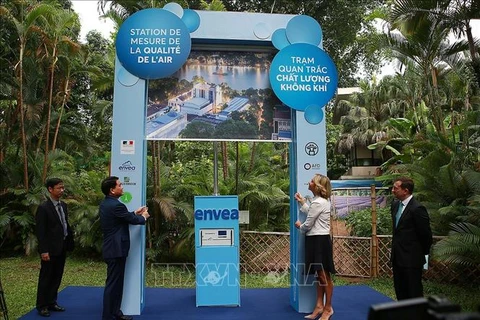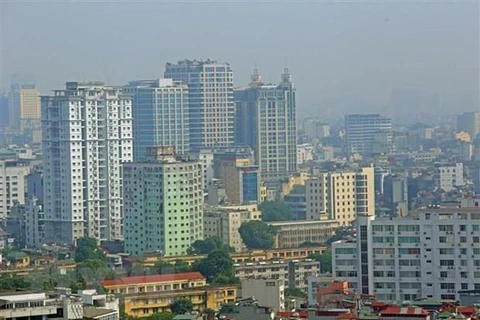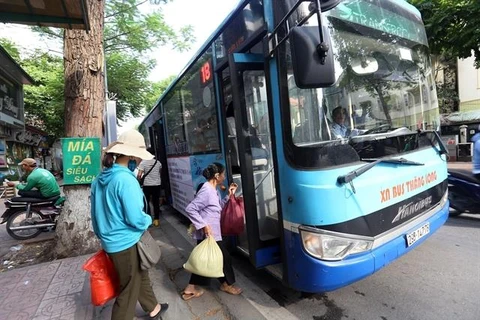 Vietnam is reported to have cut hundreds of thousands of tonnes of substances harmful to the ozone layer (Photo: VNA)
Vietnam is reported to have cut hundreds of thousands of tonnes of substances harmful to the ozone layer (Photo: VNA) Hanoi (VNA) – The Vietnamese Ministry of Natural Resources and Environment in conjunction with the United Nations Environment Programme and the World Bank (WB) organised a ceremony in Hanoi on September 16 to mark the International Day for the Preservation of the Ozone Layer.
In January 1994, Vietnam became one of the first countries to join the Vienna Convention for the Protection of the Ozone Layer and the Montreal Protocol on Substances that Deplete the Ozone Layer.
Vietnam has eliminated the consumption of CFC, Halon, and CTC since January 1, 2010 and completely stopped the use of HCFC-141b and Methyl Bromide since January 1, 2015.
On September 4, 2019, the Vietnamese Government issued Resolution No. 64/NQ-CP officially approving the Kigali Amendment to the Montreal Protocol.
Also at the ceremony on September 16, the second phase of the “National Management Plan for eliminating HCFC substances of Vietnam” (HPMP II) project was launched.
Caitlin Wiesen, Acting Resident Coordinator of the UN and Resident Representative of the UN Development Programme in Vietnam, said the celebration together with the launch of the HPMP II reflect Vietnam’s efforts in implementing the Montreal Protocol, and its coordination with other countries in protecting the ozone layer and the environment in general.
Stefanie Stallmeister, Operations Manager for the WB in Vietnam, said the bank has cooperated with Vietnam in realising the protocol over the past 15 years.
The country has cut hundreds of thousands of tonnes of substances harmful to the ozone layer, he said, noting that as an important partner of the HPMP II, the WB will continue to support Vietnam in implementing the project, he said.
Tang The Cuong, Director of the Climate Change Department under the Ministry of Natural Resources and Development, said the HPMP II, which runs from 2018 to 2023, aims to help Vietnam reduce 35 percent of the consumption of HCFC substances in line with the roadmap set in the protocol./.
VNA
